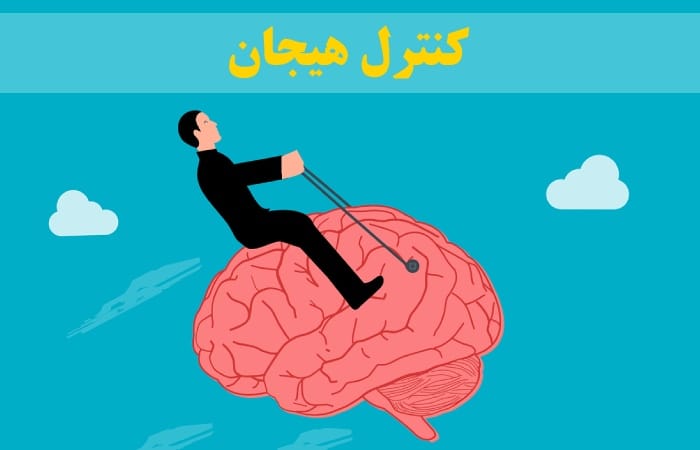
Blog
Emotion control

Human emotions play a very important role in interactions, relationships, personality development, and decision-making. Therefore, controlling and managing emotions is one of the most important topics studied. However, to manage emotions, there are important points that need to be understood. According to Sigmund Freud, suppressing emotions and feelings results in negative outcomes; thus, it is better to manage emotions rather than suppress them.
There is a difference between feelings, emotions, and affections. There are over 85 types of feelings, emotions, and affections in humans. The circle of feelings encompasses the circle of affections, and the circle of affections includes the circle of emotions. Therefore, feelings include both affections and emotions.
فهرست عناوین
ToggleTypes of Feelings
Feelings are divided into two categories:
Feelings directed toward another being, called affections, such as hope, love, and fear. For these, one can say it is possible to hope for someone or something, or to love someone or something.
Feelings not directed toward another being, such as anxiety and optimism. For these feelings, it cannot be said that the optimism is for something or someone because optimism is directed toward an action.
Affections are divided into two types:
- Affections that have no outward manifestation, such as hope and despair.
- Affections that have outward manifestations, such as anger and shame, which are accompanied by signs like blushing or rapid breathing. These types of affections are called emotions.

The Impact of Emotions on Decision-Making
To improve and enhance the quality of life, you must make correct decisions. According to a study conducted at Harvard University, a person makes over 35,000 decisions daily. For example, the first decision is before waking up and concerns the time to get up. When the alarm sounds, you repeatedly consider various possibilities: Should I wake up now? What if I sleep for five more minutes?
After waking, questions such as what to eat for breakfast, what clothes or shoes to wear, and which means of transportation to use come to mind, requiring you to make decisions.
An interesting point is that your decisions depend on two main factors: your logic and your emotions. In other words, the level of your logic and the circle of your emotions directly affect the type of decisions you make. For example, a student who fears a strict and disciplined professor chooses to skip oversleeping in order to arrive at class on time; in this decision, the logical and rational aspect plays a larger role.
Mr. Daniel Goleman, in his book Emotional Intelligence, states that over 80% of human decisions are emotional and depend on emotional intelligence and emotion management. For example, cigarette packages have long displayed warnings about their harms, yet thousands of people knowingly smoke daily. Even doctors and specialists who are aware of these harms continue to smoke.
Therefore, it can be said that the quality of your life is closely related to the quality of your emotions. What you enjoy or find unpleasant directly affects the quality of your decisions. If the decisions you make are based on unbalanced and asymmetric emotions, naturally your decisions will be unbalanced, and consequently, your life will be unbalanced as well.
Your emotions are divided into positive and negative emotions. To determine whether an emotion is positive or negative, attention must be paid to its balance. For this reason, it is recommended to avoid making decisions when angry or overly happy because, at these times, you are out of balance, and your decisions lack a logical basis and are unbalanced.

Decision-Making in Emotions
One of the secrets to success is not to make important decisions, promise, or sign contracts when you have moved away from your balance and core state toward positive or negative extremes.
People with high emotional intelligence are aware that interaction with others is inevitable. During these numerous interactions, others will inevitably violate established rules and affect their emotions. Therefore, by managing emotions and feelings, the consequences and negative effects of these situations can be minimized.
Moreover, the depth of your relationship with those around you is directly related to the intensity and extent of your feelings toward them. People who do not have a proper understanding of logic cannot manage their emotions and have difficulty understanding the depth of their relationships.
Suggested article: Communication errors
What is Emotional Control and Regulation?
Emotional control and regulation involve any action that changes the intensity of an emotional experience. This does not mean suppressing or avoiding feelings. With emotional regulation skills, you can influence your emotions as well as how you express them.
Some people regulate their emotions better than others; in fact, they have high emotional intelligence and are aware of their own and others’ internal experiences. While they may seem naturally calm, these individuals also experience negative emotions.
The good news is that emotional self-regulation is not a fixed trait, and emotional regulation skills can be learned and improved over time. Learning how to manage negative experiences can help your mental and physical health.

Strategies for Managing Emotions
Give yourself enough space; this means after experiencing an emotion and before responding, pause and reflect momentarily, then respond. This helps you make better decisions.
Pay attention to your emotions; remember that your emotions are an inseparable part of your personality and are inevitable, so allow them to show themselves.
Name what you feel; identify and name specific emotions like sadness, anger, or disappointment that you are experiencing.
Practice mindfulness; performing mindfulness techniques such as deep breathing can help in managing emotions.
برای مشاوره رایگان و رزرو وقت (یا اگر تماس گرفتید و قادر به پاسخگویی نبودیم) شماره تماس خود را وارد کنید. ما به زودی با شما تماس می گیریم!



